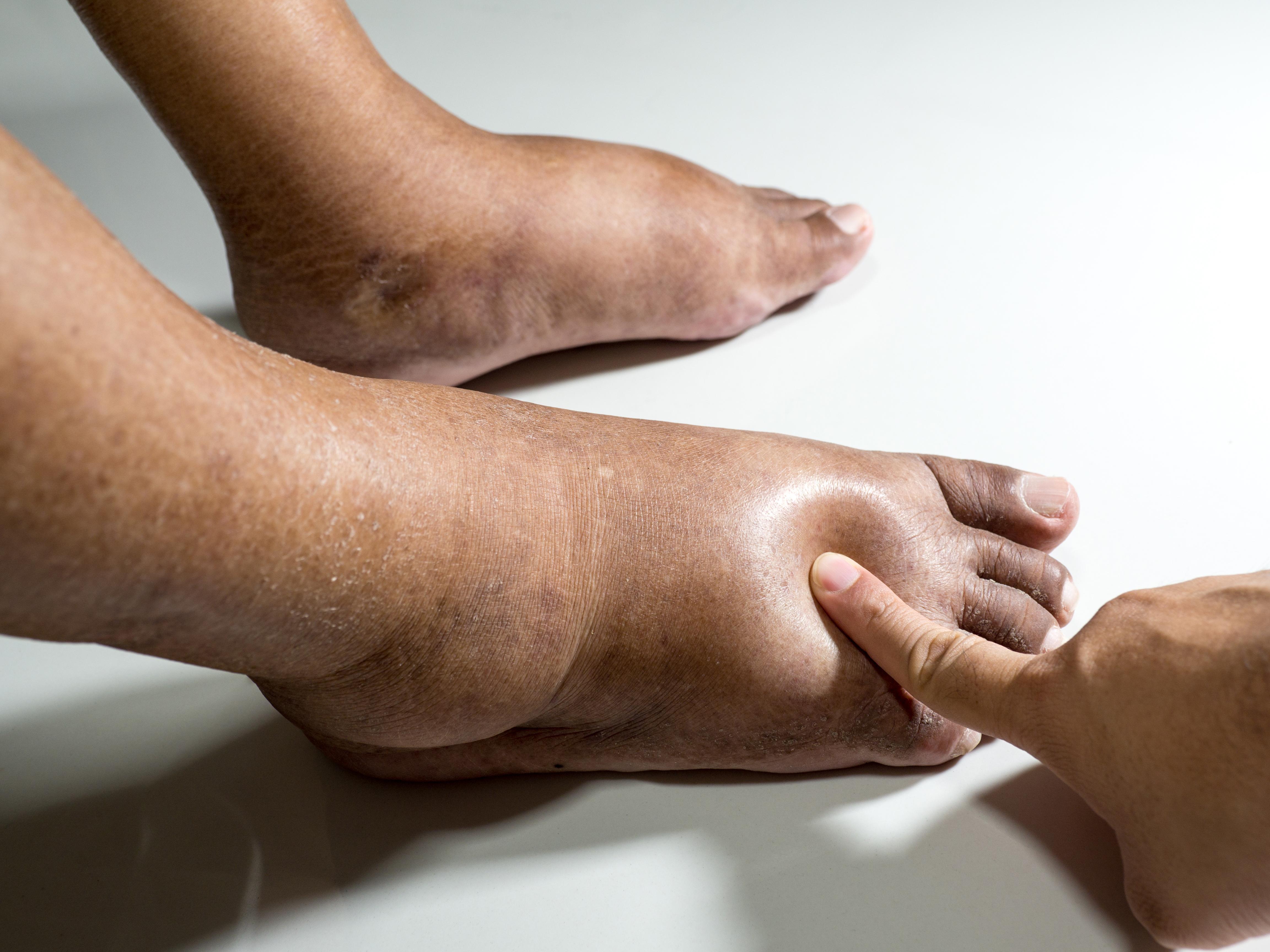Leg Swelling
Center for Varicose Veins
Board Certified Vascular and Interventional Radiologist & Diagnostic Radiologist located in Wilton, CT & Fairfield, CT
Leg swelling, or edema, is often due to a fluid buildup in your lower limbs caused by chronic venous insufficiency. If you have leg swelling due to vein disease, Board-Certified Vascular and Interventional Radiologist Vinay Madan, MD, and his team at Center for Varicose Veins in Wilton, and Fairfield, Connecticut, can help. They provide advanced treatments including VenaSeal™ vein adhesive, ClosureFast™ radiofrequency ablation, endovenous laser ablation, and sclerotherapy to treat the underlying causes of leg swelling. Call Center for Varicose Veins today to find out more or use the online form to book an appointment.
Leg Swelling Q & A
What causes leg swelling? 
Leg swelling means there's an accumulation of fluid in your lower legs. Edema, which is the medical term for this type of leg swelling, occurs when the veins in your legs become leaky. These leaky blood vessels develop when there's a buildup of pressure due to faulty valves.
Your leg veins should return blood to your heart, fighting gravity by the pumping and compression of the veins as your muscles move when you walk or run. The valves in your veins stop blood from backing up and keep it moving against gravity, up to your heart.
When your valves don’t work as they should, it’s called chronic venous insufficiency (CVI), which can result in the development of varicose veins.
What other symptoms occur with leg swelling and varicose veins?
Leg swelling and varicose veins can lead to inflammation in your legs and cause symptoms such as:
- Itching
- Fatigue
- Burning
- Leg pain
- Tingling
- Heaviness
- Soreness
- Throbbing
- Cramping
- Night cramps
- Restless legs
- Swollen legs
- Discoloration of the skin around the veins
Severe CVI and varicose veins can also lead to the formation of painful leg ulcers.
How is leg swelling treated? 
At Center for Varicose Veins, treatment for leg swelling begins with conservative approaches.
Dr. Madan might recommend you wear medical-grade compression stockings to improve blood flow. You also need to increase the circulation in your legs by changing position often, elevating your legs while seated, losing weight if you're overweight or obese, and getting more exercise.
If conservative treatments are unsuccessful in managing your leg swelling, Dr. Madan arranges a diagnostic ultrasound scan to evaluate the veins in your legs. If the scan shows evidence of vein disease, you might require minimally invasive treatments such as:
ClosureFast radiofrequency ablation
ClosureFast is an advanced treatment that uses radiofrequency energy or heat to close the diseased veins.
Endovenous laser ablation
Laser ablation works like radiofrequency ablation but uses laser energy to heat the vein instead of radio waves.
VenaSeal Closure System
VenaSeal treats varicose veins by closing (or sealing) your diseased veins with a medical adhesive.
Sclerotherapy
With sclerotherapy, Dr. Madan injects a solution or foam into the problem vein that causes the vein to collapse.
These methods all close off the varicose veins so blood has to find another route. When the vein isn't in use, it gradually breaks down, and your body disposes of the remains.
The Center for Varicose Veins team selects the most appropriate treatment method for your leg swelling, depending on factors like the size and location of your varicose veins.
If you're experiencing difficulties with leg swelling, Center for Varicose Veins offers advanced, minimally invasive procedures to improve or eliminate this issue. Call the office today to schedule a consultation with Dr. Madan or book an appointment online.


